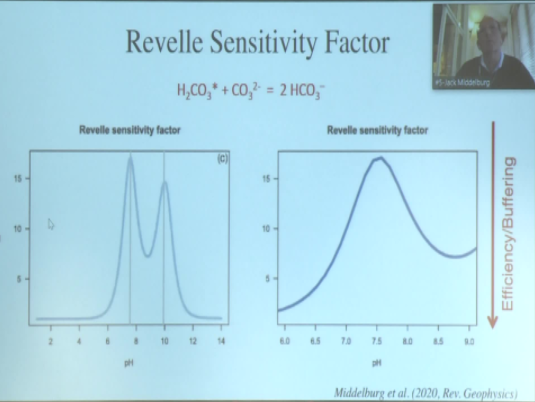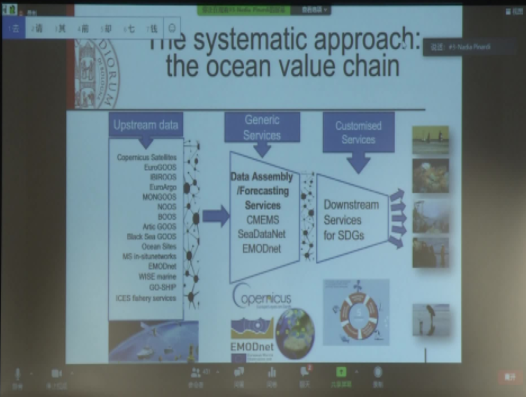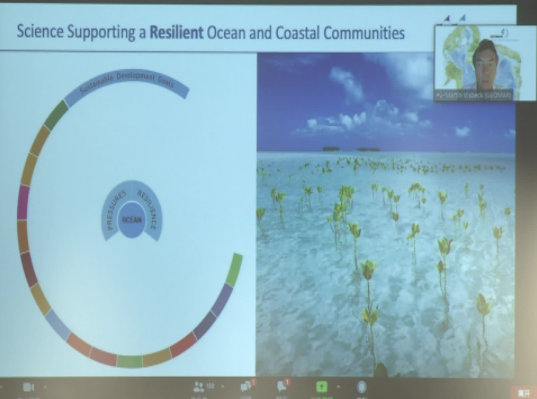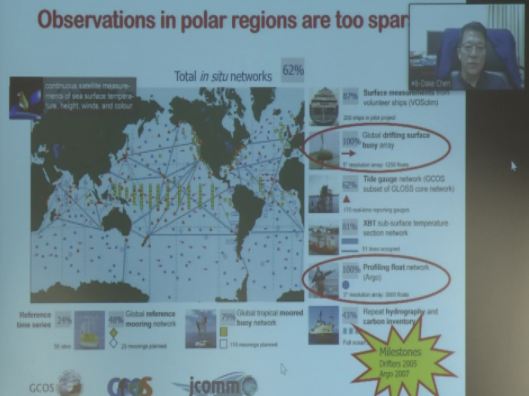-
 Ocean alkalinity, buffering and biogeochemical processes
Ocean alkalinity, buffering and biogeochemical processes演讲人:Jack Middelburg
Uptake and storage of anthropogenic carbon dioxide in the ocean is related to the reaction of dissolved carbon dioxide with water to form bicarbonate (and minor quantities of carbonic acid and carbonate). Alkalinity, the excess of bases in solution, governs the efficiency at which this occurs and provides buffering capacity towards acidification. Here I present the biogeochemical processes impacting the ocean carbonate system over multipletimescales. Over geological time scales alkalinity input to the ocean from weathering should be in balance with removal via carbonate mineral burial in the sea. However, a re -evaluation of the modern oceanicalkalinity balance revealed that the so far neglected riverine delivery of particulate inorganic carbon should be included to balance inputs and outputs. Next I present a retrodiction of ocean alkalinity, dissolved inorganic carbon and pH over the last 50 million years.
-
 Predicting the global coastal ocean: Toward a more resilient society
Predicting the global coastal ocean: Toward a more resilient society演讲人:Nadia Pinardi
Climate change impacts and growing human activities at sea, at the coasts and in the oceans require an international system of monitoring and forecasting that supports a science-based approach tomanagement. In Europe, the Copernicus program has been developed in the past ten years to implement the backbone of operational oceanography from the global to the regional European seabasins, serving the ocean community at large, especially the academic one. Predictions and long-term reanalysis of the past state of the oceans allow to explore the oceancirculation dynamics and the connected pelagicbiochemical cycles with unprecedented accuracy and completeness. It is a new era of abundant data to explore the earth system dynamics.
-
 Future Ocean Sustainability - From Ocean Observation towards Sustainable Development
Future Ocean Sustainability - From Ocean Observation towards Sustainable Development演讲人:Martin Visbeck
The ocean is essential to our society – it regulates the global climate, provides us with natural resources such as food, materials, important substances, and energy. It is essential for international trade and recreational and cultural activities. Ocean observations touch our lives every day from the food we eat, to the clothes we wear, to how we spend our leisure time. The ocean is estimated to be the seventh largest economy in the world. Goods and services from coastal and marine environments have been estimated at US$2.5 trillion each year worldwide. Together with human development and economic growth, increased use and overuse of ocean resources and services have exerted strong pressure on the marine environment, ranging from overfishing, unsustainable resource extraction, and alteration of coastal zones to various types of thoughtless pollution including CO2 emissions causing climate change - the ocean is warming,acidifying, deoxygenating and sea level is rising.
-
 Perspectives on China’s polar ocean and climate research
Perspectives on China’s polar ocean and climate research演讲人:Dake Chen
The polar oceans and ice-sheets play vital roles in the Earth’s climate system, and have been the focus of many international research initiatives, such as the Southern Ocean Observing System (SOOS) and the polar oceans and ice-sheets play vital roles in the Earth’s climate system, and have been the focus of many international research initiatives, such as the Southern Ocean Observing System (SOOS) and the Multidisciplinary drifting Observatory for the Study of Arctic Climate (MOSAiC). The implementation of these initiatives calls for a strong international collaboration to provide scientific, technic and logistic supports. Here we first briefly describe the scientific drivers of polar ocean and climate research from a global perspective, and then discuss China’spotential contributions to the ongoing and future international polar programs, in accordance with our national polar research activities supported by various agencies.
主办单位:中国科学院学部学术与出版工作委员会
技术支持:中国科学院计算机网络信息中心
关于学术引领网站上的任何文字、图片、视频资料的使用必须经过中国科学院学部工作局的许可
© 1996 - 中国科学院 版权所有 京ICP备05002857号-1 京公网安备110402500047号
通讯地址:北京市海淀区中关村北一条15号(100190)


